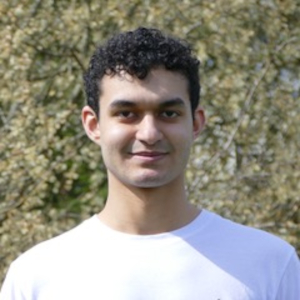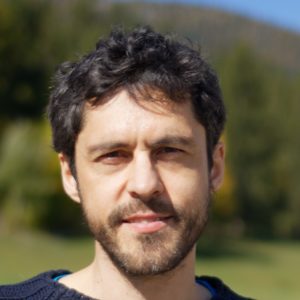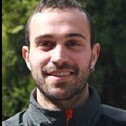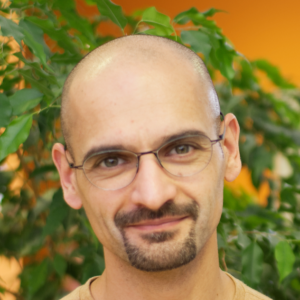Overview
From new concepts to devices : we are exploring new concepts in spintronics based on spin dependent transport with various systems; structure inversion asymmetry (spin orbit torques, Rashba effect, Spin Hall Effect, Topological Insulators), and alternative geometries in order to develop innovative architectures of devices.
Research directions
Spin Orbit Torques
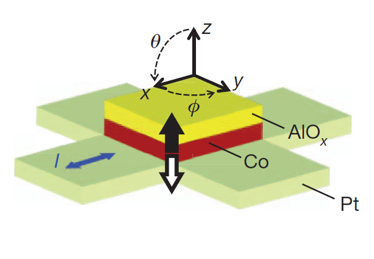
We aim at understanding and mastering spin orbit torques for efficient and deterministic magnetization switching with in plane currents.
3-Terminal MRAM
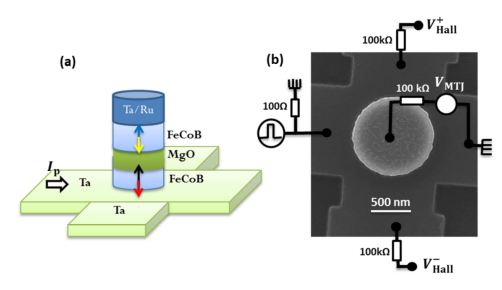
We develop electrically addressable non-volatile memories combining high speed and infinite endurance.
The team
Former members
Post-docs
- Thomas BRÄCHER (2015-2017)
- Murat CUBUKCU (2012-2015)
- Before 2012:Mario Aurino, Karol Marty, Yasmina Hadj Larbi
- Soong-Gun JE (2016-2018)
- Haozhe YANG (2016-2019)
PhDs
- Alexandre MOUILLON (2014-2018)
- Defended before 2016: Alexandru Trifou, Emilie Jue, Alexandre Lopez, Marc Drouard
- Mohamed Ali NSIBI (2014-2018)
- Jayshankar NATH (2015-2018)
- Roméo JUGE (2016-2019)
- Pyunghwa JANG (visitor from Korea Univ., 2018-2020)
Projects
- DARPA (2018-2021)
- ANR SkyLogic JCJC, O. Boulle (2018-2021)
- ERC Smart Design, M. Miron (2015-2020)
- EU SPOT (2013-2016)
Partners
- Néel Institut, Grenoble (France)
- Unité Mixte Physique CNRS/Thalès, Palaiseau (France)
- Laboratoire de Physique des Solides, Orsay (France)
- Antaios, Grenoble (France)
- CEA/LETI Grenoble (France)
- Karlsruhe Institute of Technology (Germany)
- National Center for Scientific Research, Demokritos (Greece)
- Catalan Institute of Nanotechnology, Barcelona (Spain)
- University of Barcelona, (Spain)
- In Silicio, (France)
- Singulus (Germany)
- Mainz (Germany)
Recent news
- PhD Defense – Déterminisme d’écriture dans les points mémoire SOT-MRAM à anisotropie perpendiculaire (February 22nd, 2023)

Jeudi 9 mars 2023 à 15h, auditorium 445 Bat. 10.05 CEA, (accès réglementé *), Jérémie Vigier SPINTEC/ANTAIOS soutiendra sa thèse (soutenance publique **) intitulée : Déterminisme d’écriture dans les points mémoire SOT-MRAM à anisotropie perpendiculaire Visioconférence : ... - Computing and storing data at the nanoscale using magnetic skyrmions (December 08th, 2022)

Magnetic skyrmions are appealing for use in logic and memory devices combining small size and fast motion. Here, we propose to exploit skyrmion interactions to perform both logic and memory operations at the nanoscale. ... - Controlling skyrmion chirality with a gate voltage (December 01st, 2022)

Magnetic skyrmions are localized chiral spin textures, which offer great promise to store and process information at the nanoscale. The unique sense of rotation of their surrounding domain wall, called chirality, is resulting from the ... - Observation of skyrmions in synthetic antiferromagnetic and their nucleation using current and light (November 28th, 2022)

Skyrmions in synthetic antiferromagnets are appealing for use in future memory and computing devices, combining small size and fast motion, but creating, stabilizing, and observing them remains a challenge. Here, we demonstrate the stabilization and ... - Masters thesis projects for Spring 2023 (September 21st, 2022)

You find here the list of proposals for Master-2 internships to take place at Spintec during Spring 2023. In most cases, these internships are intended to be suitable for a longer-term PhD work. Interested Master-1 ...

